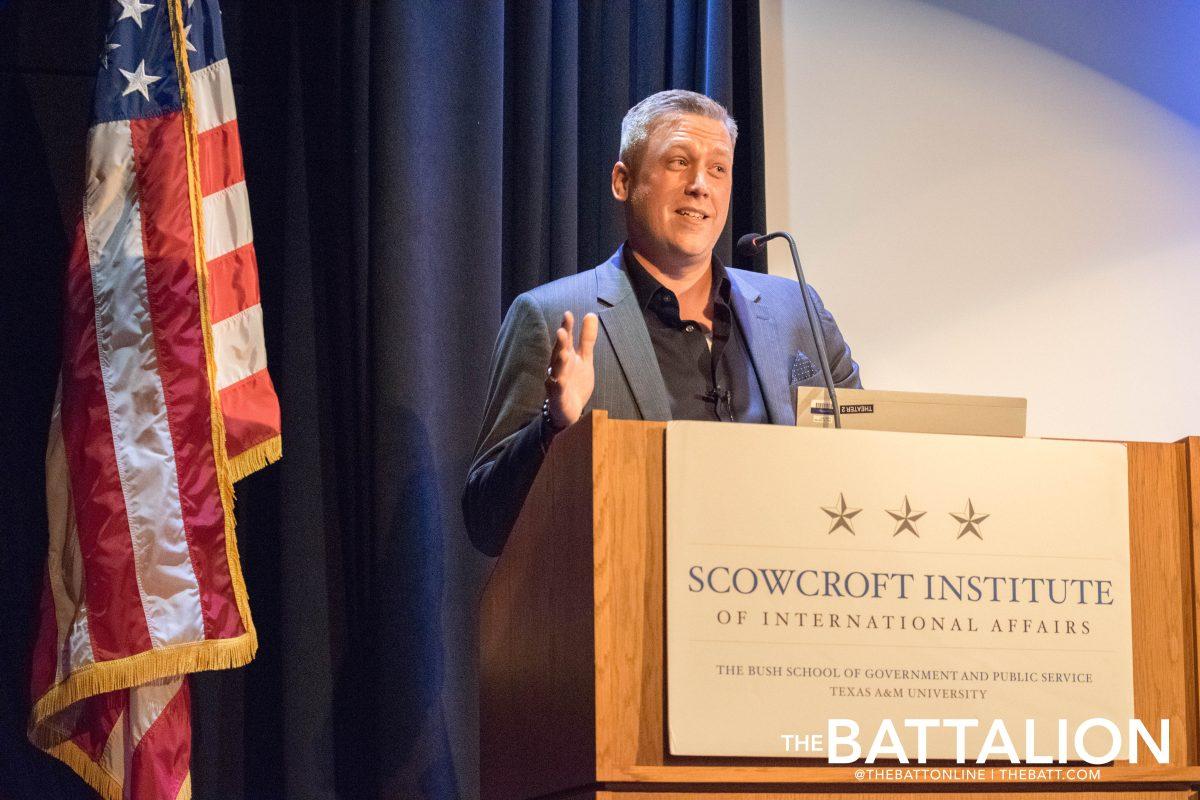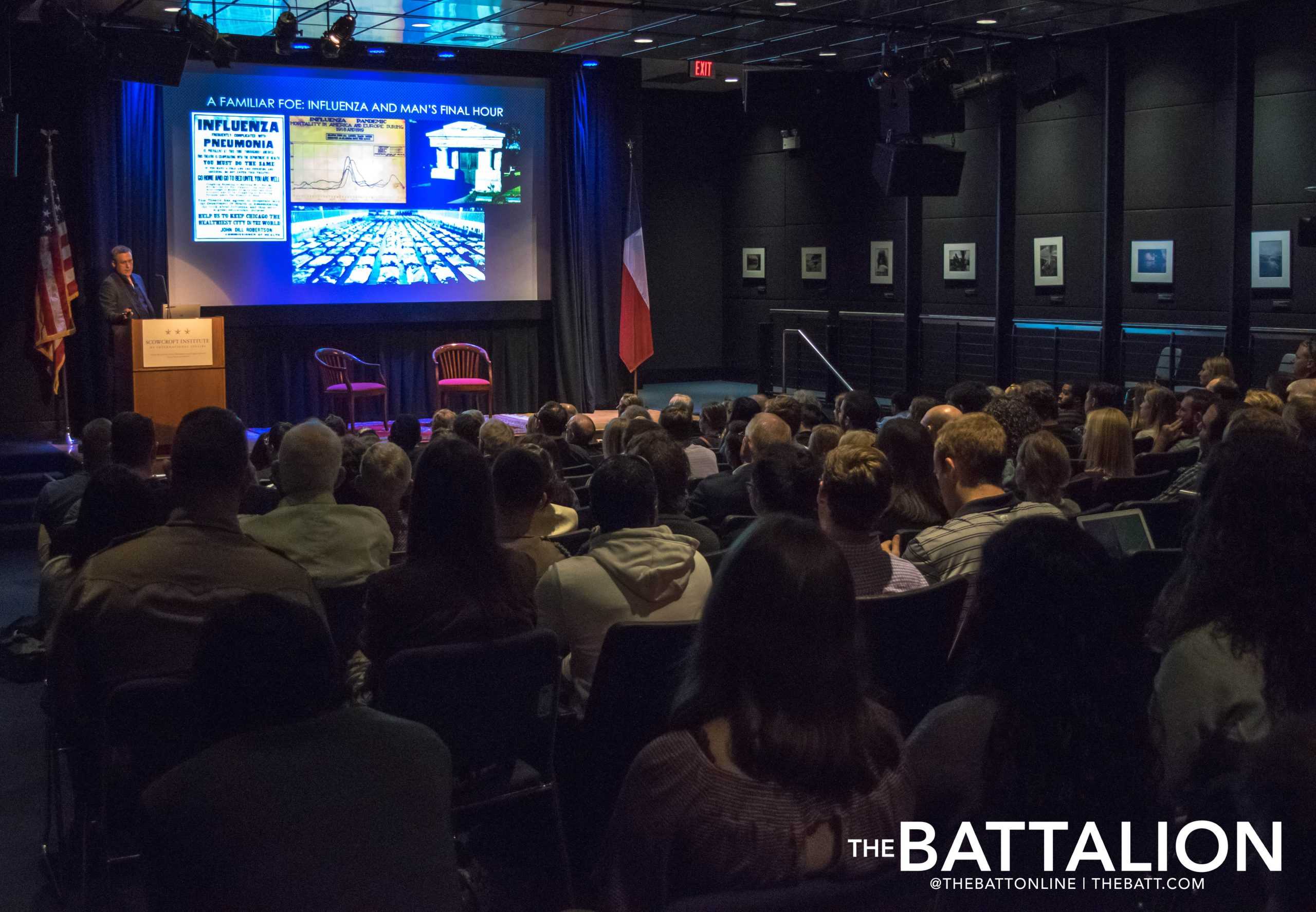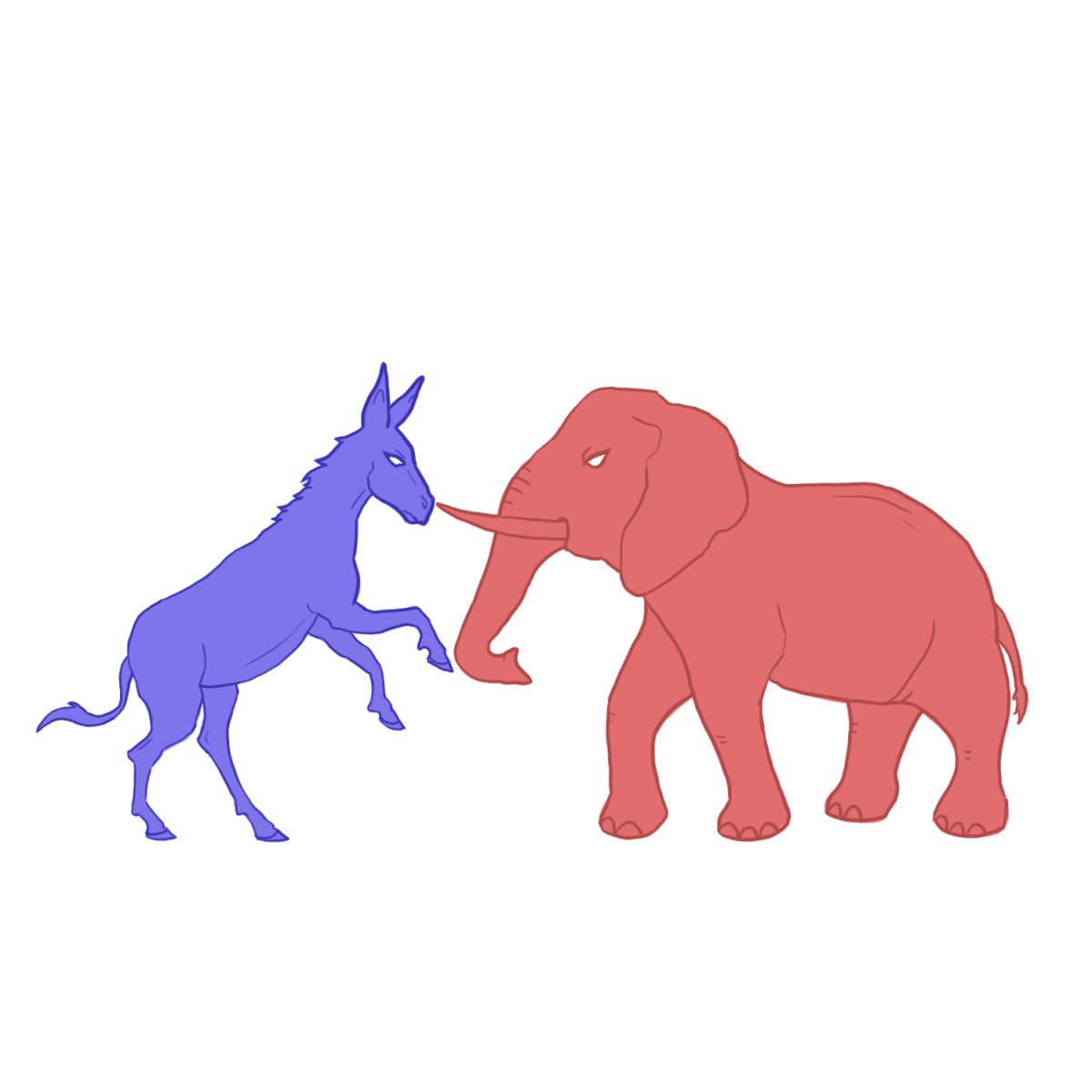Joseph Fair has stared death in the face multiple times and won.
Fair, an American virologist, led a discussion at the George Bush Library Orientation Theater Wednesday evening to share his experiences and insight on epidemics around the world.
“I was a Jesuit seminarian at the time, going through seminary school, and what motivated me to get in this field was seeing how the Jesuits made a difference,” Fair said. “The Jesuits were known as the militants of the Army in which they lay their foundation to give service in low-resource, terrible environments.”
A native of New Orleans, Fair obtained his master’s and doctorate degrees in molecular virology and public health from Tulane University. Since then, he has flown around the world to monitor serious outbreaks of disease.
Fair has been featured on NBC Nightly News, 60 Minutes and The Washington Post. He has also written and co-authored more than 45 articles on virology, public health and related concepts. Fair was also a key figure in the global fight against Ebola in West Africa in 2014.
“The largest number of outbreaks prior to 2014 was 350, and then we heard of the number of outbreaks in West Africa getting as high as 5,000 — that’s when we knew we were in different territory,” Fair said. “One of the main reasons why those numbers were so high is because having all these countries [Sierra Leone, Liberia, Guinea and Cote D’ivoire] being so close together. They had open borders where it was all just one big country.”
Though there was no cure for Ebola at the time, Fair looked to improve public health procedures while containing the outbreak of the disease, which was first discovered in 1976 in the Democratic Republic of Congo. Since the virus slowly breaks down body systems, it is extremely deadly.
“The public health treatment at this time, was that there was no treatment,” Fair said. “Usually when you walk into hospital, especially here in the U.S., you can expected to get better. Here during this time, it was completely the opposite. They would sit there and shrug in the process and then try to get you as far as away from the community as possible. It was very dehumanizing.”
Although a cure for Ebola was discovered in 2017, Fair still has his worries about public health.
“Public health is a lot like the intelligence world,” Fair said. “If we’re doing our job in public health in the world, no one is going to know, but when we mess up everyone will know.”
The discussion was open to the public, allowing students and community members to learn from Fair’s experiences. Public health sophomore Sima Bordbar said she would like to go on to receive a master’s degree in public health.
“It’s an infectious disease lecture,” Bordbar said. “That’s the kind of thing I want to do and focus on when I graduate, and it’s just fascinating to me.”
Austin Akin, public health sophomore, said he wants to take the same steps as Fair for his future career.
“In truth, I want to find out how to become this guy,” Aiken said. “I want to a make a difference in the world and find out the steps in the sciences in what it takes to be a better life for myself and others as well.”
Waging war on the microscopic scale
February 1, 2018
Photo by Photo by Paul Burke
Jospeh Fair is a virologist who helped contain the Ebola outbreak in 2014.
0
Donate to The Battalion
$2740
$5000
Contributed
Our Goal
Your donation will support the student journalists of Texas A&M University - College Station. Your contribution will allow us to purchase equipment and cover our annual website hosting costs, in addition to paying freelance staffers for their work, travel costs for coverage and more!
More to Discover











